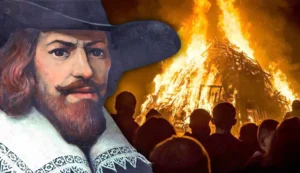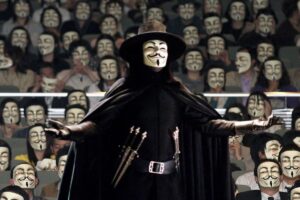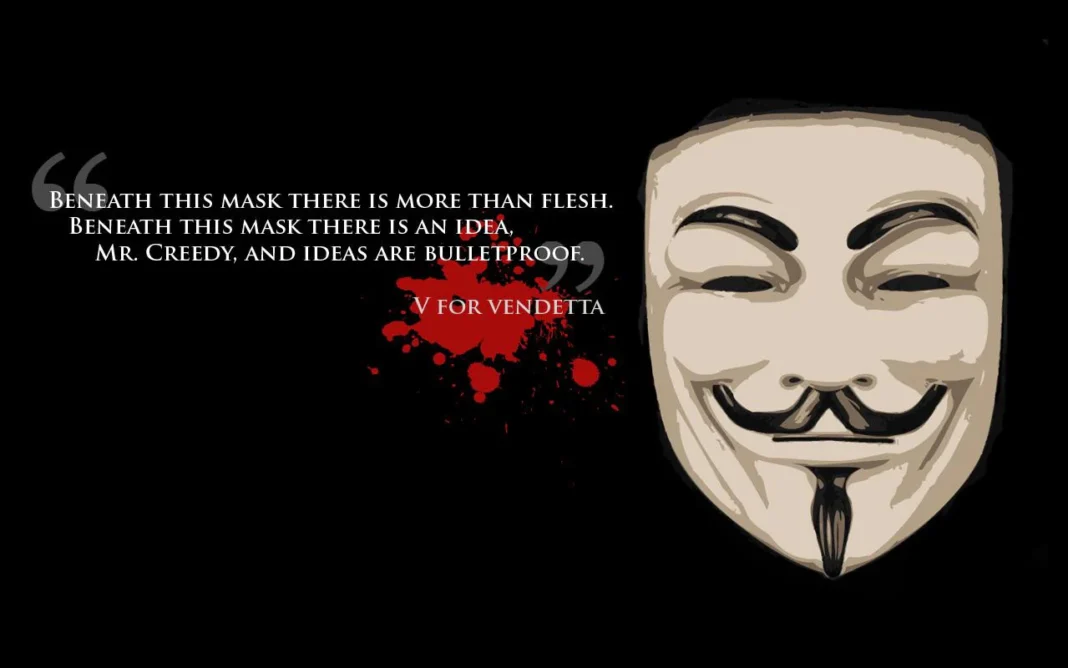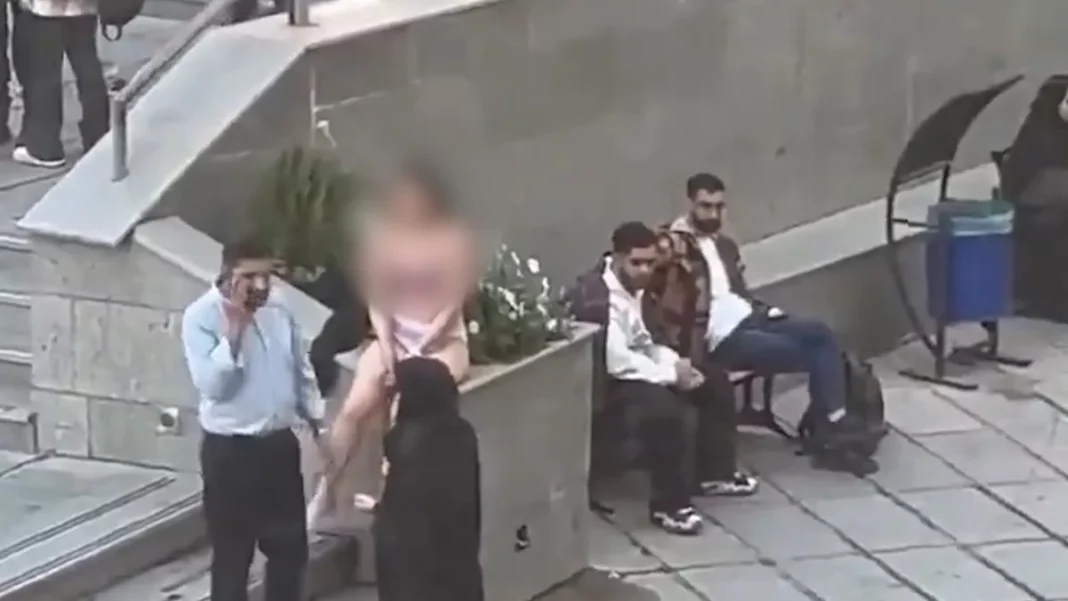The first weekend of November sees the annual celebration of Bonfire Night when around the country, people come together to make bonfires and watch them burn, whilst fireworks displays are seen and heard all over!
But where does this tradition stem from? During Non-Fiction November, let’s go back to 5th of November, 1605 when Guy (Guido) Fawkes and his co-conspirators attempted but failed in their ‘gunpowder plot’ to blow up the House of Lords. Every year on the 5th November is Guy Fawkes Night or Bonfire Night to commemorate this!
Guy Fawkes Night, also known as Guy Fawkes Day, Bonfire Night and Fireworks Night, is an annual commemoration observed on 5 November, primarily in Great Britain, involving bonfires and fireworks displays. Its history begins with the events of 5 November 1605 O.S., when Guy Fawkes, a member of the Gunpowder Plot, was arrested while guarding explosives the plotters had placed beneath the House of Lords. The Catholic plotters had intended to assassinate Protestant King James I and his parliament. Celebrating that the king had survived, people lit bonfires around London. Months later, the Observance of 5th November Act mandated an annual public day of thanksgiving for the plot’s failure.

Within a few decades Gunpowder Treason Day, as it was known, became the predominant English state commemoration. As it carried strong Protestant religious overtones it also became a focus for anti-Catholic sentiment. Puritans delivered sermons regarding the perceived dangers of popery, while during increasingly raucous celebrations common folk burnt effigies of popular hate-figures, such as the Pope. Towards the end of the 18th century children began begging for money with effigies of Guy Fawkes and 5 November gradually became known as Guy Fawkes Day. Towns such as Lewes and Guildford were in the 19th century scenes of increasingly violent class-based confrontations, fostering traditions those towns celebrate still, albeit peacefully. In the 1850s changing attitudes resulted in the toning down of much of the day’s anti-Catholic rhetoric, and the Observance of 5th November Act was repealed in 1859. Eventually the violence was dealt with, and by the 20th century Guy Fawkes Day had become an enjoyable social commemoration, although lacking much of its original focus. The present-day Guy Fawkes Night is usually celebrated at large organised events.
Settlers exported Guy Fawkes Night to overseas colonies, including some in North America, where it was known as Pope Day. Those festivities mostly died out with the onset of the American Revolution. Claims that Guy Fawkes Night was a Protestant replacement for older customs such as Samhain are disputed.
Remember, Remember, the 5th of November lyrics
Remember, remember, the 5th of November,
Gunpowder, treason and plot.
I see no reason
Why gunpowder treason
Should ever be forgot.
Guy Fawkes, Guy Fawkes, ’twas his intent
To blow up the King and the Parliament
Three score barrels of powder below
Poor old England to overthrow
By God’s providence he was catch’d
With a dark lantern and burning match
Holler boys, holler boys, let the bells ring
Holler boys, holler boys
God save the King!
V FOR VENDETTA -THE MOVIE ALLEGORY
The very popular movie V for Vendetta , is about that night but in a symbolical, way.
V for Vendetta is a 2005 dystopian political action film directed by James McTeigue (in his feature directorial debut) from a screenplay by the Wachowskis.[a] It is based on the 1988–89 DC Vertigo Comics limited series of the same title by Alan Moore, David Lloyd, and Tony Weare. The film, set in a future where a fascist totalitarian regime has subjugated the UK, centres on V (portrayed by Hugo Weaving), an anarchist and masked freedom fighter who attempts to ignite a revolution through elaborate terrorist acts, and on Evey Hammond (portrayed by Natalie Portman), a young woman caught up in V’s mission. Stephen Rea portrays a detective leading a desperate quest to stop V.

Produced by Silver Pictures, Virtual Studios and Anarchos Productions, Inc., V for Vendetta was originally scheduled for release by Warner Bros. Pictures on 4 November 2005 (a day before the 400th Guy Fawkes Night), but was delayed; it instead opened in the United States on 17 March 2006, to mostly positive reviews from critics and became a box office success, grossing $134 million against a production budget between $50–54 million. Alan Moore, dissatisfied with the film adaptations of his other works, From Hell (2001) and The League of Extraordinary Gentlemen (2003), declined to watch the film and asked to not be credited or paid royalties.
Some political groups have seen V for Vendetta as an allegory of oppression by government; anarchists have used it to promote their beliefs. The film is credited for popularizing the use of the Guy Fawkes mask by anti-establishment political groups and activities; David Lloyd stated: “The Guy Fawkes mask has now become a common brand and a convenient placard to use in protest against tyranny—and I’m happy with people using it, it seems quite unique, an icon of popular culture being used this way.”
Photo: nationalworld.com / wikipedia
VIDEO -V FOR VENDETTA



